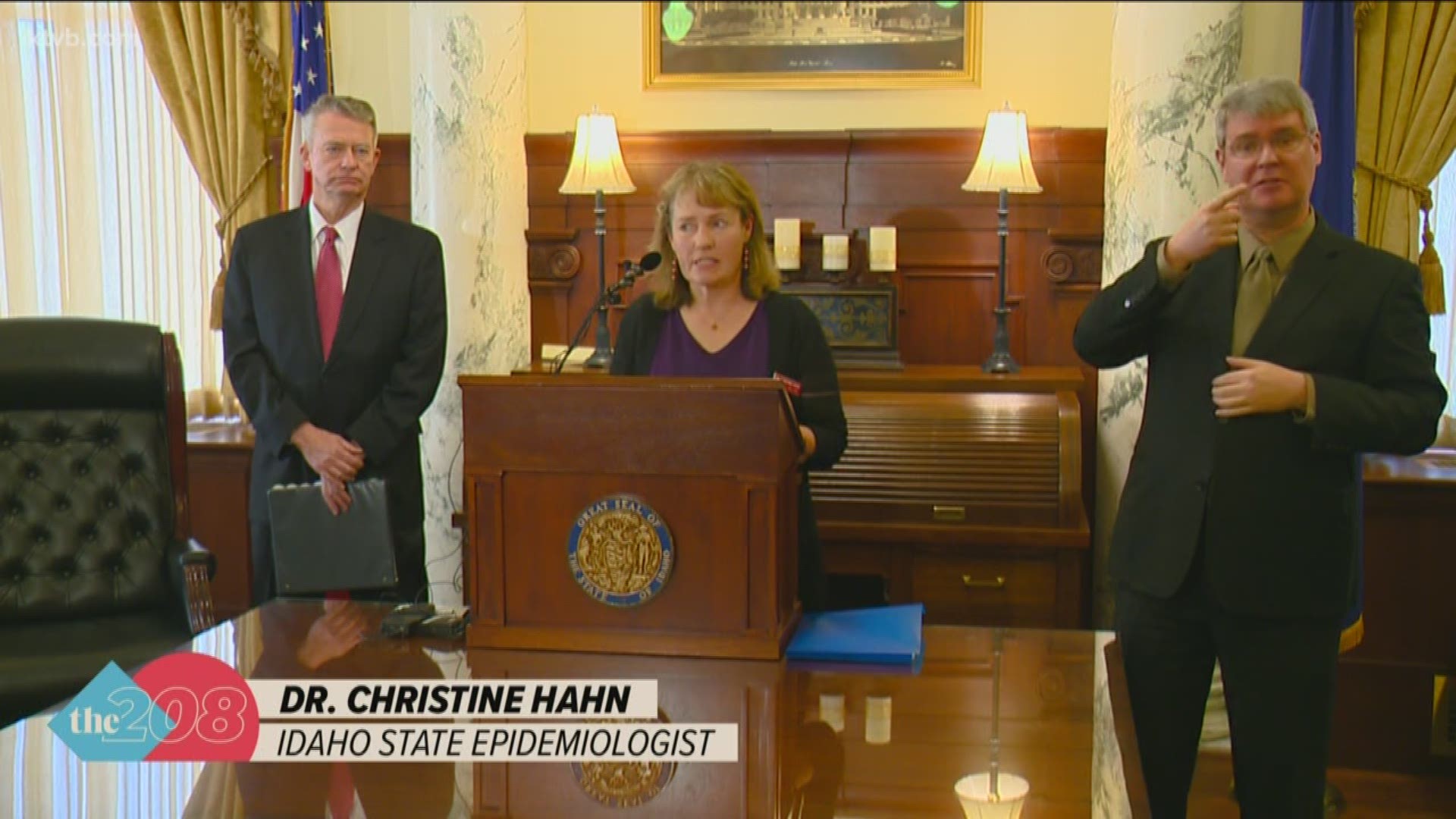BOISE, Idaho — Gov. Brad Little and top health officials outlined what's being done to stop the spread of the coronavirus in Idaho.
During a press conference at the Capitol Wednesday morning, Little said there are still no reported cases of novel coronavirus in the state.
"The individual risk for coronavirus in Idaho is still low. However, national and international situations rapidly involving, and we do expect cases in Idaho at some point. But, Idaho is prepared," Little said.
The governor said parents of healthy children should not be concerned about the coronavirus. The greatest risk is for our older population and those with respiratory issues, and he says the virus can be harmful or deadly when occurring during the flu season.
LIttle announced that the state has created an online resource that will provide Idahoans with up-to-date information about the coronavirus. The website is Coronavirus.Idaho.Gov. Updates are also being provided on Twitter.
The governor also created a coronavirus working group that met for the first time Wednesday, prior to the press conference. (See the full list below)
Dr. Dave Jeppsen, Director of the Idaho Department of Health and Welfare, is chairman of the group.
He says this group of experts and professional will help Idaho stay ahead of anything that may happen. Jeppsen stressed the importance of the governor's message of staying healthy and engaging in low-risk behaviors.
"While the risk remains low, actually for any individual, what each of us should be doing is washing our hands regularly. If you're sick, please stay home. Avoid those that are sick, and cover your coughs and sneezes because the best thing that we can do is make sure all of us be as healthy as possible," he said.
Dr. Christine Hahn is Idaho's state epidemiologist. She joined Little at the press conference and said that health officials around the country are learning more about the coronavirus each day.
"We've been fortunate that we have not be amongst the first states, and we are very fortunate that we don't have what is going on in Washington state, our neighbor," Dr. Hahn said.
She said Idaho is in daily communication with Washington, other states and the CDC on this constantly changing situation.
"Our public health goal in Idaho and across the nation is to slow this virus down. We probably can't stop it," she said.
Hahn says by slowing the spread of the virus down we can reduce the burden on health care systems, urgent care centers, emergency departments, clinics, long-term care facilities that cannot handle a sudden influx of a lot of ill people.
Here are the members of the coronavirus working group put together by Idaho Gov. Brad Little:
- Dave Jeppsen, Director, Idaho Department of Health and Welfare
- Brian Whitlock, President, Idaho Hospital Association
- Carol Morley, Director, North-Central Public Health District
- Brad Richey, Director, Idaho Office of Emergency Management
- Dr. Carolyn Bridges, retired CDC public health physician
- Dr. David Pate, retired physician and former CEO St. Luke's Health System
- Idaho Superintendent of Public Instruction Sherri Ybarra
GET BREAKING NEWS ALERTS: How to customize and navigate the new KTVB app
"We are working hard to make sure our response and level of care in Idaho rises to the expectation of our citizens," Little said. He added to be on the watch for updates from his office in the coming days and weeks.
You can follow @IdahoCOVID19 for official information regarding coronavirus in Idaho.
Facts not fear: Putting COVID-19 into context
The majority of people who have coronavirus will get better without any long-term effects, according to an Oregon doctor. About 82% of cases tend to be mild. In these cases, symptoms diminish over five to seven days, although people are still capable of transmitting the disease. But there are many people with a higher risk of having a more severe disease if they are diagnosed with coronavirus, including those with heart disease, diabetes, asthma and other vascular disease problems.
Also, most children who get it have mild symptoms.
To put the coronavirus numbers in context, millions of Americans get the flu every single year and there are thousands of flu deaths annually.
Since October 2019, the CDC estimates around 32 million Americans have gotten the flu. That’s one in every 10 Americans.
Since the coronavirus outbreak began late last year, there have been around 80,000 confirmed coronavirus cases in China. That means those cases account for just around .0056% of China's population.”
Facts not fear: More on coronavirus
See our latest updates in our YouTube playlist:

